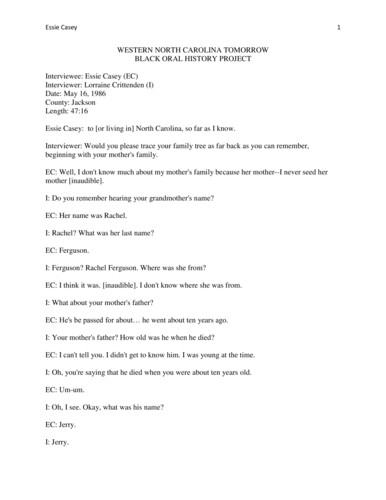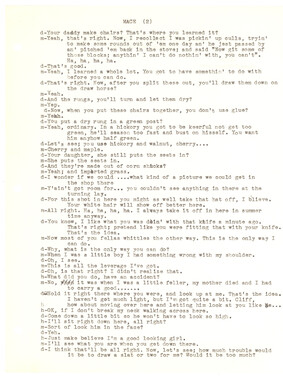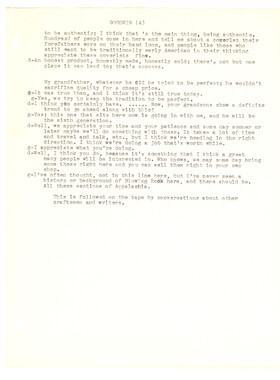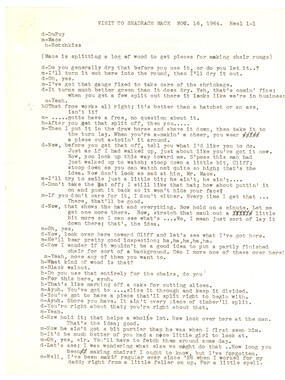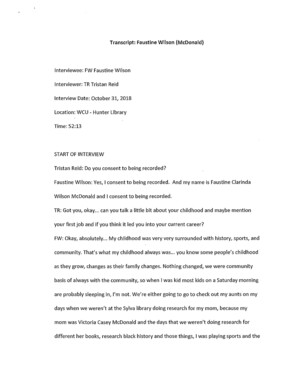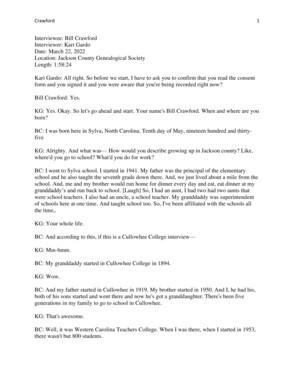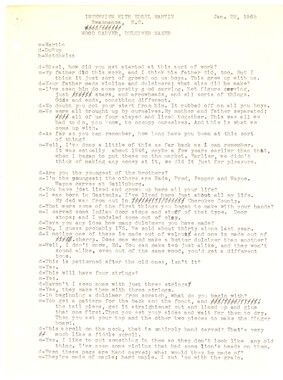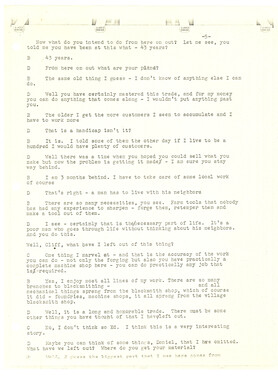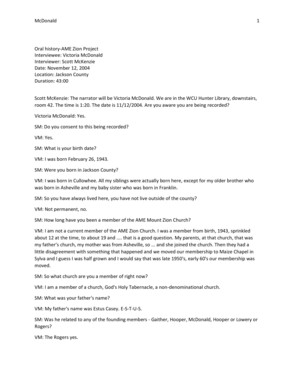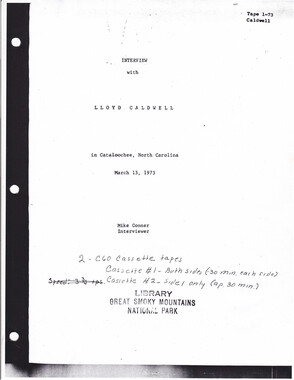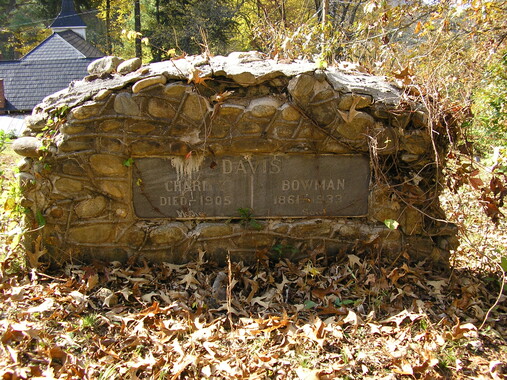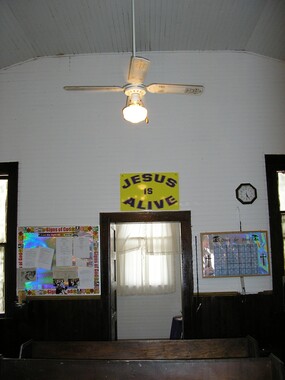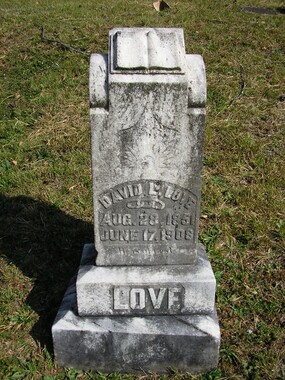Western Carolina University (20)
View all
- Canton Champion Fibre Company (2308)
- Cherokee Traditions (293)
- Civil War in Southern Appalachia (165)
- Craft Revival (1942)
- Great Smoky Mountains - A Park for America (2767)
- Highlights from Western Carolina University (430)
- Horace Kephart (941)
- Journeys Through Jackson (154)
- LGBTQIA+ Archive of Jackson County (26)
- Oral Histories of Western North Carolina (314)
- Picturing Appalachia (6772)
- Stories of Mountain Folk (413)
- Travel Western North Carolina (160)
- Western Carolina University Fine Art Museum Vitreograph Collection (129)
- Western Carolina University Herbarium (92)
- Western Carolina University: Making Memories (708)
- Western Carolina University Publications (2283)
- Western Carolina University Restricted Electronic Theses and Dissertations (146)
- Western North Carolina Regional Maps (71)
- World War II in Southern Appalachia (131)
University of North Carolina Asheville (6)
View all
- 1700s (1)
- 1860s (1)
- 1890s (1)
- 1900s (2)
- 1920s (2)
- 1930s (5)
- 1940s (12)
- 1950s (19)
- 1960s (35)
- 1970s (31)
- 1980s (16)
- 1990s (10)
- 2000s (20)
- 2010s (24)
- 2020s (4)
- 1600s (0)
- 1800s (0)
- 1810s (0)
- 1820s (0)
- 1830s (0)
- 1840s (0)
- 1850s (0)
- 1870s (0)
- 1880s (0)
- 1910s (0)
- Appalachian Region, Southern (15)
- Asheville (N.C.) (11)
- Avery County (N.C.) (1)
- Buncombe County (N.C.) (55)
- Cherokee County (N.C.) (17)
- Clay County (N.C.) (2)
- Graham County (N.C.) (15)
- Great Smoky Mountains National Park (N.C. and Tenn.) (1)
- Haywood County (N.C.) (40)
- Henderson County (N.C.) (5)
- Jackson County (N.C.) (131)
- Knox County (Tenn.) (1)
- Macon County (N.C.) (17)
- Madison County (N.C.) (4)
- McDowell County (N.C.) (1)
- Mitchell County (N.C.) (5)
- Polk County (N.C.) (3)
- Qualla Boundary (6)
- Rutherford County (N.C.) (1)
- Swain County (N.C.) (30)
- Watauga County (N.C.) (2)
- Waynesville (N.C.) (1)
- Yancey County (N.C.) (3)
- Blount County (Tenn.) (0)
- Knoxville (Tenn.) (0)
- Lake Santeetlah (N.C.) (0)
- Transylvania County (N.C.) (0)
- Interviews (314)
- Manuscripts (documents) (3)
- Personal Narratives (8)
- Photographs (4)
- Sound Recordings (308)
- Transcripts (216)
- Aerial Photographs (0)
- Aerial Views (0)
- Albums (books) (0)
- Articles (0)
- Artifacts (object Genre) (0)
- Bibliographies (0)
- Biography (general Genre) (0)
- Cards (information Artifacts) (0)
- Clippings (information Artifacts) (0)
- Crafts (art Genres) (0)
- Depictions (visual Works) (0)
- Design Drawings (0)
- Drawings (visual Works) (0)
- Envelopes (0)
- Facsimiles (reproductions) (0)
- Fiction (general Genre) (0)
- Financial Records (0)
- Fliers (printed Matter) (0)
- Glass Plate Negatives (0)
- Guidebooks (0)
- Internegatives (0)
- Land Surveys (0)
- Letters (correspondence) (0)
- Maps (documents) (0)
- Memorandums (0)
- Minutes (administrative Records) (0)
- Negatives (photographs) (0)
- Newsletters (0)
- Newspapers (0)
- Occupation Currency (0)
- Paintings (visual Works) (0)
- Pen And Ink Drawings (0)
- Periodicals (0)
- Plans (maps) (0)
- Poetry (0)
- Portraits (0)
- Postcards (0)
- Programs (documents) (0)
- Publications (documents) (0)
- Questionnaires (0)
- Scrapbooks (0)
- Sheet Music (0)
- Slides (photographs) (0)
- Songs (musical Compositions) (0)
- Specimens (0)
- Speeches (documents) (0)
- Text Messages (0)
- Tintypes (photographs) (0)
- Video Recordings (physical Artifacts) (0)
- Vitreographs (0)
- WCU Mountain Heritage Center Oral Histories (25)
- WCU Oral History Collection - Mountain People, Mountain Lives (71)
- Western North Carolina Tomorrow Black Oral History Project (69)
- A.L. Ensley Collection (0)
- Appalachian Industrial School Records (0)
- Appalachian National Park Association Records (0)
- Axley-Meroney Collection (0)
- Bayard Wootten Photograph Collection (0)
- Bethel Rural Community Organization Collection (0)
- Blumer Collection (0)
- C.W. Slagle Collection (0)
- Canton Area Historical Museum (0)
- Carlos C. Campbell Collection (0)
- Cataloochee History Project (0)
- Cherokee Studies Collection (0)
- Daisy Dame Photograph Album (0)
- Daniel Boone VI Collection (0)
- Doris Ulmann Photograph Collection (0)
- Elizabeth H. Lasley Collection (0)
- Elizabeth Woolworth Szold Fleharty Collection (0)
- Frank Fry Collection (0)
- George Masa Collection (0)
- Gideon Laney Collection (0)
- Hazel Scarborough Collection (0)
- Hiram C. Wilburn Papers (0)
- Historic Photographs Collection (0)
- Horace Kephart Collection (0)
- Humbard Collection (0)
- Hunter and Weaver Families Collection (0)
- I. D. Blumenthal Collection (0)
- Isadora Williams Collection (0)
- Jesse Bryson Stalcup Collection (0)
- Jim Thompson Collection (0)
- John B. Battle Collection (0)
- John C. Campbell Folk School Records (0)
- John Parris Collection (0)
- Judaculla Rock project (0)
- Kelly Bennett Collection (0)
- Love Family Papers (0)
- Major Wiley Parris Civil War Letters (0)
- Map Collection (0)
- McFee-Misemer Civil War Letters (0)
- Mountain Heritage Center Collection (0)
- Norburn - Robertson - Thomson Families Collection (0)
- Pauline Hood Collection (0)
- Pre-Guild Collection (0)
- Qualla Arts and Crafts Mutual Collection (0)
- R.A. Romanes Collection (0)
- Rosser H. Taylor Collection (0)
- Samuel Robert Owens Collection (0)
- Sara Madison Collection (0)
- Sherrill Studio Photo Collection (0)
- Smoky Mountains Hiking Club Collection (0)
- Stories of Mountain Folk - Radio Programs (0)
- The Reporter, Western Carolina University (0)
- Venoy and Elizabeth Reed Collection (0)
- WCU Gender and Sexuality Oral History Project (0)
- WCU Students Newspapers Collection (0)
- William Williams Stringfield Collection (0)
- Zebulon Weaver Collection (0)
- African Americans (97)
- Artisans (5)
- Cherokee pottery (1)
- Cherokee women (1)
- College student newspapers and periodicals (4)
- Education (3)
- Floods (13)
- Folk music (3)
- Great Smoky Mountains National Park (N.C. and Tenn.) (1)
- Hunting (1)
- Mines and mineral resources (2)
- Rural electrification -- North Carolina, Western (2)
- School integration -- Southern States (2)
- Segregation -- North Carolina, Western (5)
- Slavery (5)
- Sports (2)
- Storytelling (3)
- World War, 1939-1945 (3)
- Appalachian Trail (0)
- Cherokee art (0)
- Cherokee artists -- North Carolina (0)
- Cherokee language (0)
- Church buildings (0)
- Civilian Conservation Corps (U.S.) (0)
- Dams (0)
- Dance (0)
- Forced removal, 1813-1903 (0)
- Forest conservation (0)
- Forests and forestry (0)
- Gender nonconformity (0)
- Landscape photography (0)
- Logging (0)
- Maps (0)
- North Carolina -- Maps (0)
- Paper industry (0)
- Postcards (0)
- Pottery (0)
- Railroad trains (0)
- Waterfalls -- Great Smoky Mountains (N.C. and Tenn.) (0)
- Weaving -- Appalachian Region, Southern (0)
- Wood-carving -- Appalachian Region, Southern (0)
- Sound (308)
- StillImage (4)
- Text (219)
- MovingImage (0)
Interview with Essie Casey
Item
Item’s are ‘child’ level descriptions to ‘parent’ objects, (e.g. one page of a whole book).
-
-
Essie Casey 1 WESTERN NORTH CAROLINA TOMORROW BLACK ORAL HISTORY PROJECT Interviewee: Essie Casey (EC) Interviewer: Lorraine Crittenden (I) Date: May 16, 1986 County: Jackson Length: 47:16 Essie Casey: to [or living in] North Carolina, so far as I know. Interviewer: Would you please trace your family tree as far back as you can remember, beginning with your mother's family. EC: Well, I don't know much about my mother's family because her mother--I never seed her mother [inaudible]. I: Do you remember hearing your grandmother's name? EC: Her name was Rachel. I: Rachel? What was her last name? EC: Ferguson. I: Ferguson? Rachel Ferguson. Where was she from? EC: I think it was. [inaudible]. I don't know where she was from. I: What about your mother's father? EC: He's be passed for about… he went about ten years ago. I: Your mother's father? How old was he when he died? EC: I can't tell you. I didn't get to know him. I was young at the time. I: Oh, you're saying that he died when you were about ten years old. EC: Um-um. I: Oh, I see. Okay, what was his name? EC: Jerry. I: Jerry. Essie Casey 2 EC: Ferguson. I: Jerry Ferguson. Where did they live? EC: Bald Creek, Yancey County. I: Bald Creek in Yancey County. What did they do for a living? EC: Well, he was a kind of a farmer. I: He was a farmer? Did he grow food to sell? EC: Huh-uh. I: ... or just for his family's usage? EC: Just family. I: Well, how did he make money to get the things that he couldn't grow? EC: I can't tell that [inaudible], I didn’t know. I: Do you know if your grandmother worked outside of the home? EC: Uh, my grandmother was a slave. I: Your grandmother was a slave? So Rachel Ferguson was a slave. What about your grandfather? EC: He, uh--well, I never hear too much about him before. He was [gone before I was . . . . ] I never knew too much about him. I: All right. Do you remember anything else about your grandmother? EC: No. I: Well, tell me about your mother, her name. EC: My mother? I: Your mother. EC: Maggie. I: Maggie. Essie Casey 3 EC: Ray. I: Ray. And your father? EC: He was named Columbus I: Columbus Ray. EC: Yes I: Now, what did your father do to earn a living? EC: Well, he farmed some and then he worked on public works. I: On public works? You mean construction jobs? EC: Yes and. [muffled] [It actually sounded like guess again.] I: Well, did his job keep him in Yancey County or did he move about the country? EC: No, he stayed in Yancey County all the time. I: Do you remember any of the jobs he worked on? EC: I reckon he worked on a railroad and. I: Railroad? EC: Yes. I: You remember what else? EC: Just in farming. I: Farming and then railroad. Did your mother work outside of the home? EC: No, she didn't very much. She did a little, not much. [I don't think they had very much work to do.] She worked about a little, not much. She was home with her children. I: How many children were there? EC: There was three at a time. She did me, and my brother—and my two brothers come along. My father called [three wolves] Essie Casey 4 I: [Laughter.] So your father made, had enough income so that your mother didn't have to work outside the home. How much education did your mother and father have. EC: Well, I don't know how much; Daddy was probably better educated than mother. Mother was raised by a slave sister. She didn't have so much education but she had plenty of common sense. I: What was her sister's name that raised her? EC: Catherine. I: Catherine? EC: Catherine Ray. I: Catherine Ray. And she was a slave? EC: Urn-hum. [Muffled] I: But she had a lot of common sense? EC: Yes, she had common sense. I: Do you know if she could read or write any at all? EC: Oh, yes, she could read and write. I: What about your father? EC: Well, he had good education -- arithmetic and reading and writing. Now, what I got was through Mother mostly, teaching because I couldn't go to school much. I: You didn't get to go to school as a child? EC: Much, not much. We didn't have any schools. There wasn't any children there much, and we'd have a little school, about two months or something like that. I: About two months a year? EC: Uh-huh, that's what we had. We done that for years, and we cause there wasn't just a few children there. I: Now, is there a name for the place you lived in Yancey County? EC: What’s that? Essie Casey 5 I: Was there a name for the little community you lived in? EC: Banks's Creek. I: It's called what? EC: Banks's Creek. I: Mincey's Creek? EC: Banks's Creek. I: Banks's Creek. And so there were few children there. Well, the children who were there--did they have a formal school to go to? EC: Well, it was just like I told you about six ... about two months. I: Was there a school building? EC: [sounds like yes] I: Who was the teacher, do you remember? EC: No. [chuckle] I remember one [great big flexuous] woman. I: Well, if you didn't go to school but two months, what did you do the other ten months of the year. EC: Well, it's just we worked on the farm. I: You worked on the farm? What were some of your responsibilities? EC: Well, taking, and they raised a lot of stuff, you know beans and apples to dry, beans to pick and get dried. There were just lots of things. I: When you say dried beans are you talking about what is called "leather britches"? EC: Yes. I: Now, what do you do with those? EC: Cook 'em. I: You cook them. EC: Yes, and they good, too. [chuckles] Essie Casey 6 I: Are they? EC: Uh-huh, they are. I: What did you do with the dried apples? EC: Cook 'em. Make pies. I: Did your mother can almost all of the food. EC: She canned a lot. I: What else did your father grow on the farm? EC: Well, he growed a regular, corn and beans and potatoes and ‘tomatoes, sweet potatoes, both kinds of potatoes. He had all kinds of apples and peaches and. I: You had peaches on your farm? EC: Plenty of peaches, apples and grapes, plums. I: You didn't have to go to the store for anything hardly. EC: Just little things. We couldn't go to the store too much. And they would go [muffled]. going to the store to buy anything like sugar and salt or rice or something like that. I: Where was the nearest store, if you had to go? EC: Well, sometimes we'd have one near, and then again they'd move; sometimes they'd go [two miles]. I: Where, into what town? EC: [Well, a way to the cabin back over the hill. This is a guess on several words--is there a Camel Back or something?] Well, sometimes we'd go on up--lots of times we'd go to Burnsville. I: Burnsville? EC: That's the county seat. We'd go out there to get different things, you know, like clothes, different things. I: I was going to say, if your father grew most of the food, did your mother make the clothing? EC: Oh, yes, she was a good [hand with clothes]. Essie Casey 7 I: So she was a seamstress? EC: Yes, she was a good hand with sewing. I: Did she have a machine back then? EC: Um-hm. I: Did she? With the pedal? EC: Yeah. [long sentence unclear] ... but she had a machine. I: Let's stop here just a minute. [Tape stops] I: You said that you didn't get to go to school much. Did your brother and sister get to go? EC: Yes, after I married and they were much younger than me but after we married they what little schools there was there and then they sent him other places to school. I: Where did they send them? EC: Well, there's one--the baby girl came here and went to school [and sounds-like-Sasha] and they went out to Burnsville and went to school. I: Were there many black families in Burnsville? EC: They were at that time but I don't think there's so many there now. I haven't been there in years but I think they's real dried, you know. I: Now, when did your family come to Sylva? Or, when they moved from Yancey County, where did they go? EC: Well, they didn't--I married in Madison County and I come out some years ago to marry. I: Now, where is Madison County, then? EC: I mean Yancey County. I: Yancey County? EC: Uh-huh. I: You got married in Yancey County? Essie Casey 8 EC: No, I got married in Madison County and I left Yancey County and got married here [in Jackson County?]. I: Who was the first member of your family to come here, to leave home and go somewhere else? EC: I don't remember. I: Did some of your brothers leave before you did? EC: Oh, yes. They went to different places but I don't remember towns. They were boys, you know, and they went different places and got jobs. I: They went different places to get jobs? Did your mother and father ever live in Sylva? EC: No. I: So they stayed in Yancey County all of their lives? EC: Well, yes, there were just a few years before they passed and they moved to Mitchell County, to my sister's and that's where they died. I: Now, what town is Mitchell County in? EC: It's Mitchell County. It's Mitchell County. I: No, Mitchell County is in--is Spruce Pine? EC: Uh-huh. I: So your mother and father lived with your sister in Spruce Pine until they died. EC: Yes, they weren't just alone at home. They owned their own home and everything, but they just to when they were both sick and my Sister moved them in her home so she could take care of them. I: Well, when you were younger, did your father own his own home and his own land? EC: Yes, that's right. He owned his own home and a barn on it and it was [inaudible] home. He sold it. Well, after they moved the old place, sold it. I: How did he get this land and his home? EC: I couldn't tell you. They had it when I--from the first thing I knew he had it. When I was born he had it. But I guess it come through his dad. I guess. Essie Casey 9 I: When did you come to Sylva? Was this the first place that you came to once you left Yancey County? EC: No. I married when I first had lived in Mars Hill for my first marriage. I: You lived in Mars Hill? EC: Till my husband passed then we come here. I: What did your husband do for a living? EC: He farmed and carpentered. I: Oh, he was a farmer and a carpenter. I: Who taught him how to do carpentry work? EC: I don't know. I never asked him. I guess he probably just picked it up. I: Picked it up. EC: I never did ask him. I: Did your father and mother own their own home? EC: Yes. I: Did your mother work outside of the home? EC: No. I: No? EC: Well she did a little sometimes but not much. I: So you had three brothers and sisters and your father was a carpenter and a farmer. Were you able--were the younger children able to get a better education than you had? EC: You mean my brothers and sisters? I: Yes, ma’am. EC: Yes. I: You went to Mars Hill after you left? Essie Casey 10 EC: Yes, when I married. I: What did you do for a living? EC: Housekeeping, helped with the housekeeping. I: For someone else or just at home? EC: At home. I: Just at home. So you never worked outside the home either? EC: No, not too much. After my husband passed. I: Did you have children to rear after your husband passed? EC: Twenty [I swear] children. [Long section faint, chuckle] The last one was 7 years old when his daddy passed. I: So what did you do to earn your living? EC: Washed, ironed, anything that I could do. I: Did you go to different people's houses or just one family? EC: Yeah, to different people's houses. I: How did you get from one place to another? Did your father have horses or a car? EC: No, he didn't ever have, I didn't see a car in them days. Chuckle. Yes, he had a horse. I: Now, was the horse just for plowing, or was it a horse and buggy for going from one place to another? EC: Well, no, he didn't have no buggy. He had the horse and we'd ride it. I: One horse? EC: Yeah, when we wanted to drive he wanted to go somewhere. I: Your father made enough to get the things that your family needed. EC: Um-hm, yeah. I: What happened in Yancey County or Mitchell County that you remember the most? Is there any one event such as a fire or a flood? Essie Casey 11 EC: Yeah, I can remember one flood. I: Where were you? EC: Well, I believe that was after I was married for a while. I: Where were you living then? EC: Mars Hill. I: Mars Hill. There was a flood in Mars Hill? EC: No. At home. I: In Yancey County? EC: When a cloud bursted or something and come through storming a little more? I: Did anything happen to your family? EC: No. I: Do you remember World War I? EC: Yes. Some of it I can't remember. I: What do you remember about it? EC: Maybe nothing, I just worried. I: Why? EC: Well, it was just so bad and so many people getting killed. I: Did you have a brother in the war? EC: Which one? I: World War I. EC: Uh-h, I had a brother in a war but--it wasn't the last war. I: World War II? EC: Now, he was in that. Essie Casey 12 I: Were times different during the war, during the wars? EC: Yeah. I: How so? EC: I 'member a lot of difference. You couldn't get things that you could get before the war. I: What kind of things? EC: Well, things. Lots of things. Clothes and eating things. I: You couldn't get as many clothes? c: It's just hard to get. You didn't have the money to get any clothes. I: Were jobs plentiful back then? Could you get a job if you wanted one during the war? EC: One war, I don't know which one it was. But most that I know there was one we could. I: Do you remember the Depression? EC: Well, when the Depression come we lived on the farm and it didn't go so hard with us, because we was raising everything we could ask. I: Right. EC: And it didn't go so hard because we had our milk, butter and we farmed and it didn't go so hard with us. I: Did your family ever have to go on relief during the Depression? EC: No. I: Did you have to use the food stamps? EC: No. I: To buy sugar and flour? EC: No. I: So you had what you needed during the Depression. EC: Yes, because we was on the farm. Essie Casey 13 I: What do you remember about World War II? EC: I don't remember too much. That was the last war? I: Yes, ma'am. EC: Well, I was married the second time that time, and we lived on a farm, I think, and we had plenty to do so it didn't affect us so much. I: Were any of your sons in the war, World War II? EC: Yes. I: Which ones? EC: You mean this last war? l: Yes, ma'am. EC: Well, I had two. I: Both of your sons were in the war? EC: One had kinsmen died since he come up. I: Is the other one still alive? (no reply heard) Do you know where they were stationed during the war? EC: No, I don't know because the younger one, he stayed over—he stayed in Germany two years. I: He stayed in Germany two years? EC: No, about 13 months I think he stayed in Germany, and the other one, oh, he stayed in about, 20, I don't know, he stayed in, too, after that. I: He made a career out of the Army. EC: Just about. He lacked a few years. I: I see. EC: He died with cancer. Tell you the truth, he was— I: I'm sorry to hear that. Was your husband able to work during war time? Could he find work? Essie Casey 14 EC: Yeah. I: Where were you living then? EC: Which war you talking about, the last one? I: The last one. EC: Here, I think. I: You had moved from Mars Hill to Sylva. What work did he do? EC: Well, he was about retired from--he was a blacksmith. I: A blacksmith! EC: Yeah, all the time, and he raised cattle, and he had more money and raised cattle, and he used to blacksmith and put away that money and raised cattle. I: Now, what was your second husband's name? EC: George Casey. I: George Casey. EC: um-hm. I: Is he related to Clifford? EC: Clifford's father. I: Oh, he's Clifford's father. So, he learned--George Casey was taught to blacksmith and he passed that on to his son Clifford? EC: Um-hm. I: Did his blacksmithing keep him quite busy? EC: Well, when we married he wasn't doing that work then. He done retired from that when we were first married, most of it, you know, just sometimes. But he give up his shop. You could call him. I: Oh, he had a shop? EC: And raised cattle. He raised cattle. Essie Casey 15 I: So he was--and after that he farmed and raised cattle. To sell? Did he sell the cattle? EC: Um-hm. Oh, yes. I: Now, did you have a second set of children? EC: Nope. I: No. Chuckle. I misunderstood you. I thought you said you had three and then three more later. EC: Oh, well, that was my own mother and daddy. I: Oh, I see, all right, I got confused there. EC: Yeah. My own mother and daddy. I: Where did you and Mr. Casey live? EC: We lived here in Sylva. I: In Sylva? Where 'bouts? EC: Well, up near Cullowhee. It was near Cullowhee. You have to cross the railroad near the great big white house and then we'd cross the river. You'd have to take the boat across the river then you'd come to the house. I: Were there times when the water was so high you couldn't get out or in? EC: Yeah, we could get out by going the other way. We'd go out the back way and get out. But if it was high we couldn't take the boat. I: Do you ever remember that it flooded where you lived? EC: Yeah. I: What did you do? EC: We didn't do anything but stay at the house and look at it. That's all we could do. I: Oh, it didn't come near your house? EC: Oh, no, no [inaudible]. I: Were there any houses near the river that were lost in the flood? Essie Casey 16 EC: Well, I guess they were, below--you know, on down the river, 'course where we lived. I: Were there many black families where you lived? EC: Huh-uh. I: No? EC: There wasn't but one. Not close. I: Were there white families? EC: Yeah, they was white families. I: Close by? EC: Yeah, well, you had to cross the river. I: Did each family own its own boat? EC: Yeah. I: How long did it take you to cross the river? EC: Oh, it's a minute, two or three minutes, I guess. I: Two or three minutes. EC: Yeah, that was all. I: Did the water ever freeze over in the winter time? EC: Huh-uh. I: No? And so you used the boat in the winter time, too. Mrs. Casey, what are some of the religious customs you remember that are no longer in practice? Such as Sunday services--are they still the same today as they were years ago? EC: I don't know whether I--you mean tending and going to church and. I: Sunday. Nowadays we go, we have morning service. EC: Well, used to we had all-day service, you know. Then, we'd have three service--Sunday School, 11 o'clock, and 3 and 8. I: Four services? Essie Casey 17 EC: Used to. We used to. We used to go to church - over there but I - chuckle - when I was raising my family. I: What other religious practices do you remember that are different? EC: Well, the only difference I can think about they just go to church not enough times today. Just don't 'tend church like they used to. I: People don't attend church like they used to? EC: No. I: Do you remember having communion? When you were raising your family? EC: Yeah. I: Is that done the same way today? EC: Yeah. I: What about baptism? EC: Well, it's just the same. I: How were you baptized years ago. EC: I was baptized in the creek, river. I: In the river. Did you have to wear any particular kind of dress? EC: No, no, nothing particular, just so you had on plenty of what you had. [Laughter]. I: Plenty of what you had on. Was the water cold? [Laughter] You didn't have to wear the white sheet or white robes like we do today? EC: No. I: What about the minister visiting the homes of those who were sick. Was that a practice then? EC: Yeah. I: How about today? Essie Casey 18 EC: Some do and some don't so much I think 'bout all does. Now, our pastor we have, now, he visits the sick. He visits the hospital. Reverend [inaudible] when he was pastor—for some years. He was pastor here for [15] years. I: Yes, ma'am. Now, were you married in a church? They didn't have formal weddings back then? EC: Well, our neighbors would have it. Chuckle. I: Can you think of any other religious practices, any special meeting? EC: No. I: What about when a family, a member of the community died? EC: You mean I: What was the practice then? c: Well, people would just go and help out or we'd go to the homes, you know. Cook, clean up, just what had to be done to help. I: Were people carried to the cemetery in a hearse then? EC: No. I: How were they taken? EC: In a wagon. I: In a wagon? EC: When I was growing up. 'Course by the time I got grown and all they had hearses. I: Do you remember the wake? You don't remember going to a wake? EC: No. I: Do you remember how long the body was kept before it was buried? EC: Well, back then they didn't have undertakers like they do now. They had to bury them early, you know, quick as they could. I: Well, did they do anything to keep down the odor of the dead body? EC: Yeah, 'spose they did but I don't remember. Essie Casey 19 I: Well, tell me about some of the social customs you had. What were some things you did for fun? EC: When I was growing up? I: Yes, ma'am. EC: Well, I don't just… We'd get the girls and we'd get together and after Sunday school and the church. We'd get together and go out, two or three of us girls and play together. Build playhouses. Chuckle. I: You would build playhouses? EC: Yes, we had to make it mostly, built it, make dolls and put under it. I: Um-hm. What did you make the dolls out of? EC: Cloth. I: Cloth? Did you ever make any cornshuck dolls? EC: No. I don't think so, I don't remember. I: So the girls would get together and play. EC: Yeah. I: As you grew older what did the young people do for entertainment? EC: Well, we just had entertainment, church like we [told], box suppers and things like that. I: Box suppers? EC: Go to the church out here. I: Can you name something else? EC: No, I can't. I: Were most of the social activities centered around the church? EC: Yeah. I: Did you ever go dance? No? Essie Casey 20 EC: No. I: Did you ever see a baseball game when you were younger? EC: No. When I was growing up I never did [inaudible], for they didn't have them then like they do now, around close, you know, where we could have seen them. I: Well, how did you celebrate the Fourth of July? EC: I don't remember. I: Did you have the fireworks and, did you have picnics or anything like that? EC: Well, that far back we didn't have things like that. I: So it was just another day? EC: Yeah, I guess so. I don't remember it. I guess it was. I: What about Christmas? EC: Well, we'd have Santy Claus, you know. We'd be looking for Santy Claus, have different things, just Christmas programs and stuff. I: Was this at the church too or were any of the programs in the school? EC: Yes, we had programs in the school. I: Now, what were the programs in the school for, just entertainment, or to raise money, or what? EC: Um-hm, yeah, just entertainment. I: So would you agree with me that the two places that the community members went to on social or religious occasions were the church and the school? EC: Uh-huh. I: Did you ever participate in quilting bees or corn shucking or anything like that? EC: Um-hm, yeah. I: What did you do at corn shucking? EC: Well, I never so, I’d go to the, to meeting at the house, you know, where the women's cooking and all. I've been to corn shucking’s but I never did shuck no corn. Essie Casey 21 I: Ha, Ha! You didn't like to shuck corn? EC: No, and I've had them at my house. I: Well, so it was almost like a party even though they were working. EC: Uh-huh, yeah. I: Did your mother teach you to sew? EC: She tried to. I guess I could sew very well. She, I've, On the old machine, she couldn't fix, you know, the sewing machine. But I was never such a good hand at it as I coulda been [inaudible]. We carried in dresses and summer curtains and [inaudible]. But I never was good like my sister was. She could sew nice. I: Did you have other handcrafts? Did you embroider or tat or anything like that? EC: No. My talent was just hard work. I: Your talent was hard work. Laughter. All right. What about in the community, if a member of the family or anyone in the community became ill, did the neighbors respond in any way? EC: Yeah, oh, yeah. They were up early every morning and help us farming. They'd always help us out. I: What did they do? EC: Well, they go. Mother, many a time I've seen her--they'd call her and she'd gather all the herbs and medicines she had and go to their house and help out. That's the way people done back then. I: So she would go to the woods and gather these herbs? EC: Yes, and have them already fixed up and dried and everything and in the wintertime when some of the neighbors got sick or anything she'd go. Back then when you got sick you didn't have a place people might go with somebody there to see you like you do now. You have go to the hospital cause people don't [chuckles and two voices mixed up, can't understand] I: Were there hospitals then? EC: Yeah, I guess there was in places. 'Course where I was raised there wasn't any. I: Well if you were really sick, and home, what happened? EC: Well, if you could get the doctor he'd do all he could. Essie Casey 22 I: Would the doctor come to your home? EC: Oh, yeah, oh, yeah. I: Or would you go to the town? EC: He'd go to the county and back. I: Do you remember some of the functions at school? EC: No, it's so long I can't think about it. I: Well, when you were raising your children, did you go to PTA? EC: Um-hm, yeah. I: Okay. What else at school? EC: Well, if anything went wrong I'd go to the teacher. I: Okay, but were there other functions at school other than PTA? EC: Oh, yeah, they had different things. I: What kinds of things, Mrs. Casey? EC: Oh, they would have speakers sometimes. I: They would have speakers? EC: Um-hm. Different things like that. I: Who were the people most highly respected in your town, in your community? EC: Who were the people? I: Yes, ma'am. Who were some of the people you were taught to respect, other than your mother and father? EC: Well, we was taught to respect everybody, especially older people. I: Were the teacher and preacher important people in the community? EC: Yeah. I: What about raising children? What differences between then and now? Essie Casey 23 EC: A lot. I: Could you give me an example? EC: Well, back when I was raising mine, they wasn't so many different things for 'em to go to like they are now and they's easier to control. My children worked, they could work. They didn't have--and then, too, they wouldn't, you know, a lot of things going on like they are now. I: For them to do. So they worked away from home and then at home, too? EC: Yeah. It was definite that they worked at home and they'd get stuff to do around in the neighborhood, they'd do that. I: Did you have a doctor or a midwife with your children? EC: Doctor. I: You had a doctor with your children? And he would come to the house. EC: My husband wouldn't have nobody. I: He wouldn't? He was a very proud man, wasn't he? EC: Chuckle. Yeah. I: He sounds like it. EC: No, he hadn't met no doctor at that time, that's doctors wasn't and he had a sister when they was sick. I: Oh, really? EC: Um-hm, and when she [sounds like it could be] when she was around they would swap around when I was in labor and sit there with me. [inaudible on Coverson Road he had a sister inaudible] I: I see. Do you remember Dr. Martin Luther King and the Civil Rights movement, Mrs. Casey? EC: Yes, I remember him. I: Do you think times are different because of the Civil Rights movement? EC: Yes. I: In which ways? Essie Casey 24 EC: Well, in several ways. I: Do you remember having to ride in the back of the bus? EC: Many a time we did. Many of the times. I: So what other changes do you see? EC: I see I can ride anywhere on the bus I want to ride. I: What other changes? What do you remember about eating in restaurants? EC: That's what I was going to say. You can go in any restaurant, I reckon, now, and sit down and eat anywhere you want to. I: But back then, what? EC: They stuck it out the window. They stuck it out the window? EC: The back window. I: The back window at that. Do you think that the relationships between Blacks and Whites have changed a great deal? EC: Yeah, I think so. I: Where do you see the change? EC: Well, in lots of things. Just being able to eat in places, [inaudible] places where you go in. Or I can work in these offices now where you used to couldn't. Work in these stores, use the cash registers, a lot of things. I: When you were growing up, did the black and the white people mingle much? EC: Well, some did. We had neighbors who did, which claims they did. I: Do you remember playing with White children? EC: Yeah, I did. I: Do you remember the time when Blacks and, Whites went to school, ah, went to church together? Essie Casey 25 EC: No, I don't, ah [inaudible] there in late years. I: So that's a recent change. EC: Yes.
Object
Object’s are ‘parent’ level descriptions to ‘children’ items, (e.g. a book with pages).
-
Essie Casey is interviewed by Lorraine Crittenden on May 16, 1986 as a part of the Western North Carolina Tomorrow Black Oral History Project. At the time of the interview, Casey is 93 years old and the oldest black citizen in Jackson County. She discusses growing up in Yancey County on a farm where they had plenty to eat, even during the Depression. Casey talks about moving to Cullowhee where they had to take a boat to get across the river to their home. She talks a bit about both World Wars and the Civil Rights Movement.
-
